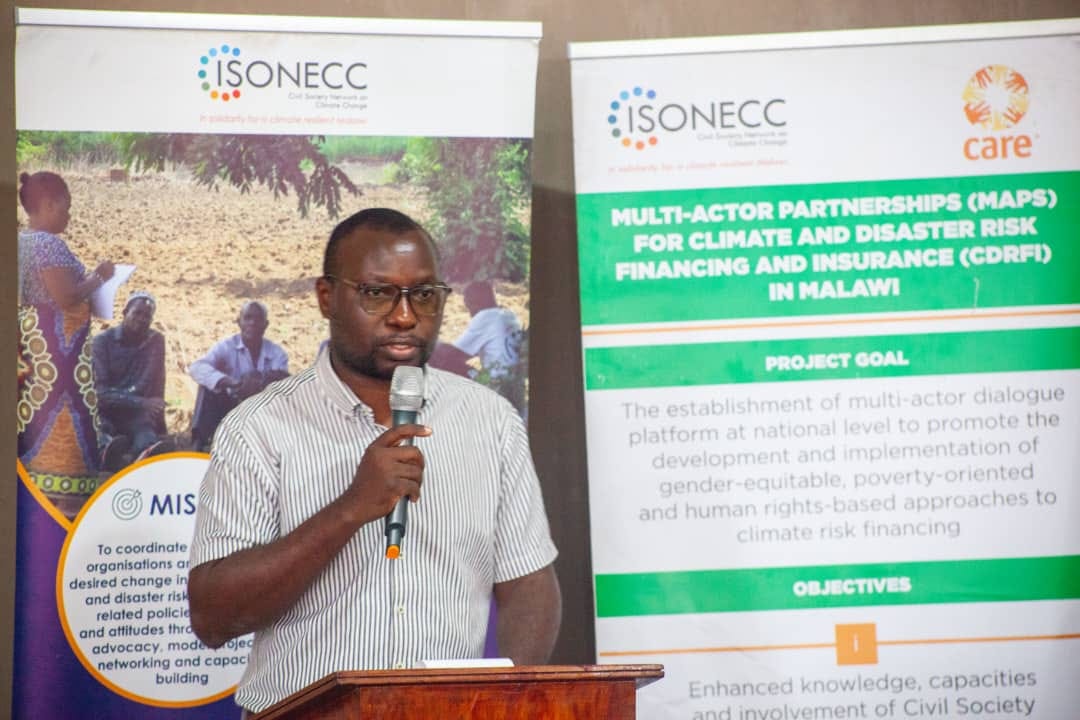Malawi Network Calls for Stronger Disaster Risk Financing Plan
The Civil Society Network on Climate Change (CISONECC) voiced this concern during a stakeholder meeting in Salima on Friday.
SALIMA, Malawi— A leading climate change network in Malawi is urging for a more robust disaster risk financing framework, writes Abraham Bisayi.
The call aims to reduce community vulnerability and enhance resilience against climate-related disasters.
The Civil Society Network on Climate Change (CISONECC) voiced this concern during a stakeholder meeting in Salima on Friday.
The gathering evaluated Malawi's 2019-2024 disaster risk financing strategy.
Julius Ng'oma, CISONECC's National Coordinator, highlighted resource scarcity as a key issue.
"Most financing instruments have been driven by external support," Ng'oma said.
Peter Chimangeni from the Department of Disaster Management Affairs announced a new government fund.
"We've established a disaster risk management fund to finance activities proactively," he stated.
The Ministry of Finance reported progress in supporting affected communities. Patricia Sakala, a debt management officer, cited partnerships with development agencies as crucial.
Malawi's current strategy, ending in 2024, aims to boost financial resilience through risk assessments and efficient resource allocation. The push for a stronger framework comes amid increasing climate-related challenges in the country.
As Malawi faces more frequent and severe disasters, the effectiveness of its financing strategy remains critical.
Stakeholders agree that a more comprehensive approach is necessary to safeguard vulnerable communities.



